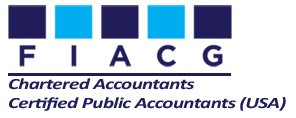- December 12, 2019
- Posted by: Francis, B.S.c (Hons.), M.Sc, (Tax), CLU, CPA, FCA, JP
- Category: Tax Issues
As a Jamaican business owner, if you have not yet experienced any form of tax audit by Tax Administration Jamaica (“TAJ”), you have been spared thus far. That is to say, were it not for the fact that TAJ is hampered from the lack of adequate resources, if you have been in business for at least five years, you would have already experienced a tax audit. Such audits usually include a combination of Payroll, GCT, and Income Tax Audits. While nothing can necessarily prevent you from being audited by TAJ, you can certainly conduct your business transactions and maintain your accounting records in ways which will guarantee favourable outcomes if you were ever audited.
Some Examples of How to Prevent Negative Outcomes from a TAJ Tax Audit
- Never Commingle Funds and Transactions: You must never commingle your personal and business funds and transactions. In more than 35 years practising as an Accountant, I found that most small business owners engage in the bad practice (knowingly or unknowingly) of commingling their personal funds with their business accounts, and commingling their personal expenses with their business accounts. You must always maintain separate business bank and credit card accounts, through which you conduct all your business transactions.
Here are just some of the disadvantages of commingling your personal transactions with your business:
- If your business were to be audited by TAJ, any personal expenses you paid through your business bank or business credit card accounts will be classified as salary or dividends paid to you, if they were not already so treated in your accounting records. For example, if you paid your monthly home rent or mortgage, your monthly home utility bills, your home security expense, or purchased any other personal items directly from your business bank or business credit card accounts, all such payments will be rightfully deemed by TAJ as payments of salary or dividends to you (if they were not already so treated in your accounting records).
- In the event such personal expenses were not already properly accounted for in your accounting records, your failure to so treat them, and thus file the requisite payroll tax returns and make the required payments for the related statutory payroll taxes, will cost you significantly by way of various penalties and interest (failure to file penalties and interest, late filing and late payment penalties and interest, etc.).
- The only positive in this scenario is that you will be allowed to deduct, as business expense for income tax purposes, the salaries paid to you from your company (if incorporated).
- The worst-case scenario is if TAJ classified such payments as dividends (if you operate your business through a Corporate structure). That is so because while your business is allowed (under Section 13 of Jamaica’s Income Tax Act “to deduct all expenses incurred for the purpose of acquiring income…”), you are not allowed any deduction for payments of dividends from your company.
- In case you experienced periods of negative business cash flow, which compelled you to use your personal funds to make payments for business expenses, be sure to maintain proper contemporaneous documentation and provide them to your accountant as soon as possible.
- Proper Classification of Employees as Opposed to Independent Contractors: It is imperative that you properly classify those who work for you in your business. On occasion, a business owner may declare that everyone (or some) working for him or her are “independent contractors” in order to avoid paying the related payroll taxes, and all the related reporting procedures. However, if those workers are working exclusively for you in your business on a continuing basis, TAJ will rightfully deem them to be your employees, and penalize you accordingly. In generally, independent contractors are persons who have their own businesses and offer services to several firms. For example, if someone you classified as an independent contractor does maintenance work exclusively for you at your place of business, he or she is your employee (not an independent contractor you contracted).
- Timely Filing and Payments of Statutory Payroll Taxes: You will reduce your tax liabilities significantly by timely electronically filing your monthly payroll tax returns, and timely paying your monthly statutory payroll taxes. Those payroll tax returns and payments are due on or before the 14th of each month. If the 14th falls on a weekend or public holiday, they are due on the next business day.
- Take Advantage of Employment Tax Credit (“ETC”): You could reduce your Income Tax Liability by the lesser of the total amount you paid in Statutory Payroll Taxes (“SPT”), or 30% of your Income Tax Liability for the tax year. You will only qualify for that savings if you electronically filed your monthly payroll tax returns on or before the 14th of each month, as well as paid your monthly SPT on or before the 14th of each month. For example, if you timely paid SPT amounting to $1.5 million for the tax year, and your Income Tax Payable for the year is $3.2 million, then the maximum ETC claimable against your Income Tax Liability in the amount of $3.2 million is $960,000 ($3.2M x 30%), because the SPT you paid (the $1.5 million) is greater than $960,000 (which is 30% of the Income Tax Payable amount of $3.2 million). Therefore, in the above scenario, your total Income Tax Payable for the year would $2.24 million ($3.2M less $960,000). As such, you would have saved $960,000 in Income Taxes.
If you have any questions, or need further clarification on the tax issues addressed in this newsletter, please do not hesitate to give me a call, or send me an email. We wish you and all your loved ones all the very best for the Christmas holidays, and a very prosperous 2020.
